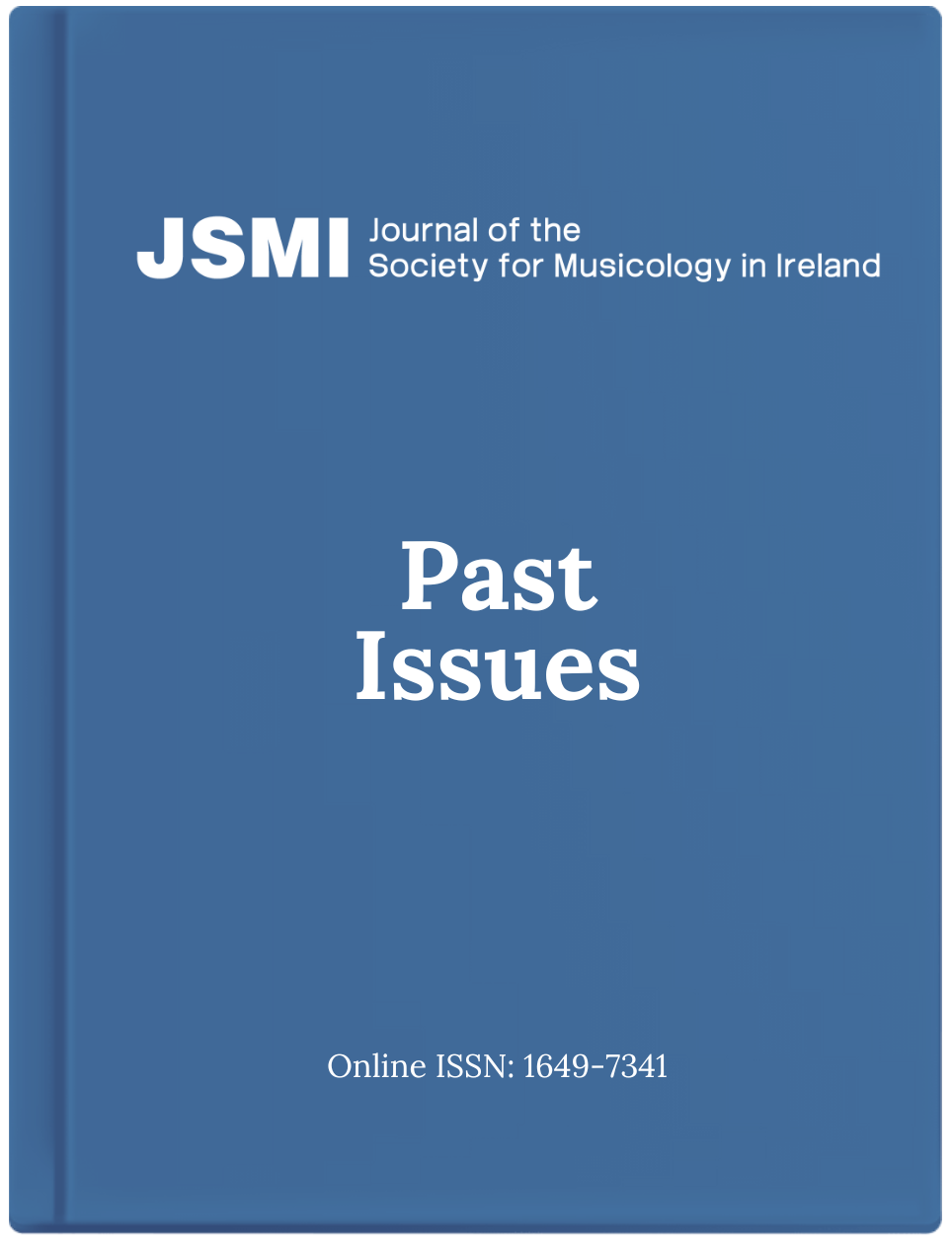Harty’s Ode to a Nightingale: A Confluence of Wagner and Elgar
DOI:
https://doi.org/10.35561/JSMI11153Keywords:
scena, Harty, Nicholls, WagnerAbstract
Hamilton Harty, a figure readily associated with an assimilation of Irish culture, in 1907 composed a setting of Keats’s Ode to a Nightingale specially for his wife, the soprano Agnes Nicholls. Nicholls had become a pre-eminent Wagnerian soprano in London thanks largely to the encouragement of Hans Richter who engaged her for many of the major female roles in productions at Drury Lane and Covent Garden. A further aspect of her success were the roles she played in Elgar’s heavily informed Wagnerian oratorios, and especially the role of Mary in The Kingdom at Birmingham in 1906. Hamilton Harty, in his capacity as one of Britain’s finest accompanists, ‘coached’ Nicholls for this role and, in response, composed his own thoroughly Wagnerian Ode to a Nightingale the following year. This article seeks not only to connect Harty’s work with the influence of Wagner and Elgar but also to identify the powerful connection poetically and musically between Harty’s ‘scena’ and Wagner’s Tristan.
Downloads
Published
Issue
Section
License
Copyright for articles and reviews published in this journal is retained by the authors, with first publication rights granted to the journal. By virtue of their appearance in this open access journal, articles are free to be used, with proper attribution, in educational and other non-commercial settings.
It is the responsibility of the author to secure (and, if necessary, pay for) written copyright permissions for the reproduction, in this online journal, of any illustrations, images, music notation, audio and video files, or any other copyright materials, that are included in the author's article.



